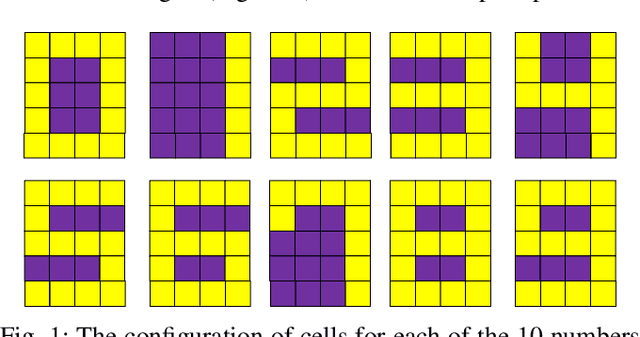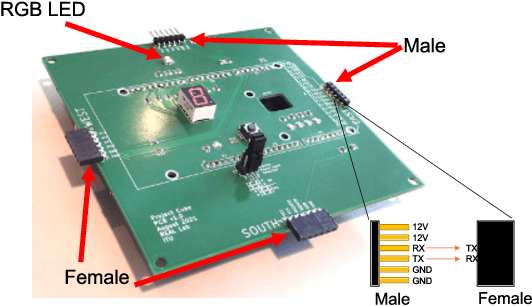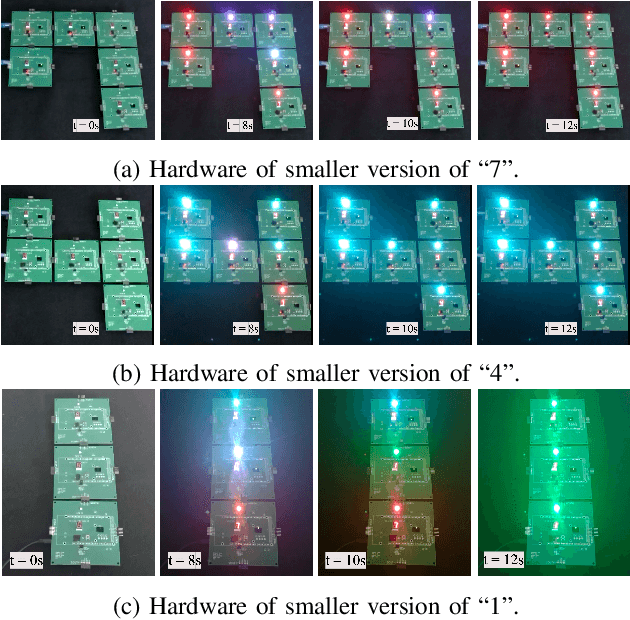Physical Neural Cellular Automata for 2D Shape Classification
Paper and Code
Mar 14, 2022



Materials with the ability to self-classify their own shape have the potential to advance a wide range of engineering applications and industries. Biological systems possess the ability not only to self-reconfigure but also to self-classify themselves to determine a general shape and function. Previous work into modular robotics systems have only enabled self-recognition and self-reconfiguration into a specific target shape, missing the inherent robustness present in nature to self-classify. In this paper we therefore take advantage of recent advances in deep learning and neural cellular automata, and present a simple modular 2D robotic system that can infer its own class of shape through the local communication of its components. Furthermore, we show that our system can be successfully transferred to hardware which thus opens opportunities for future self-classifying machines.
 Add to Chrome
Add to Chrome Add to Firefox
Add to Firefox Add to Edge
Add to Edge